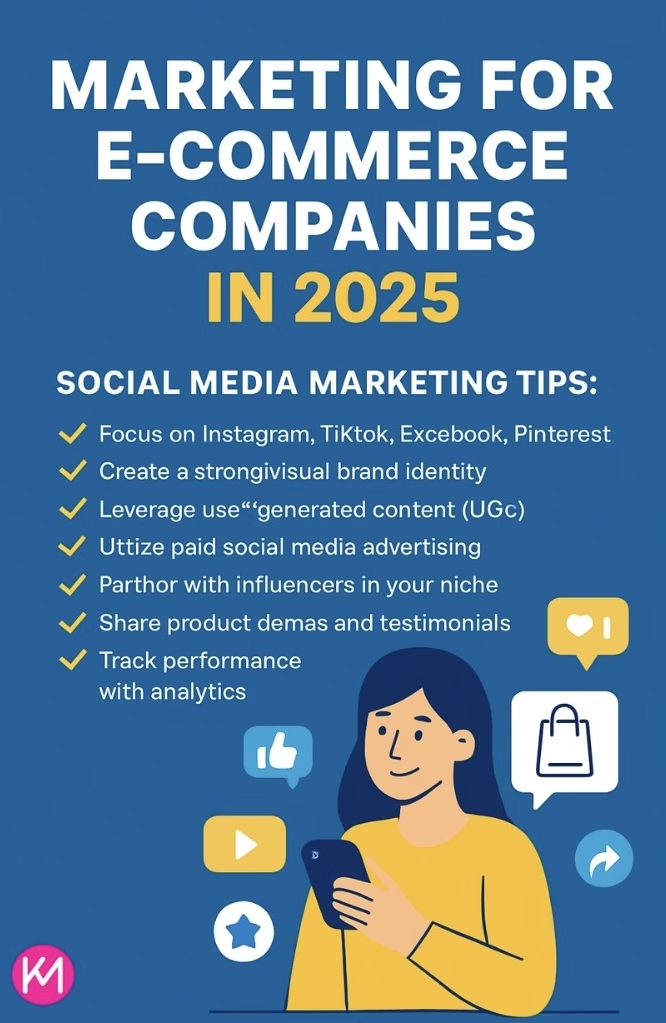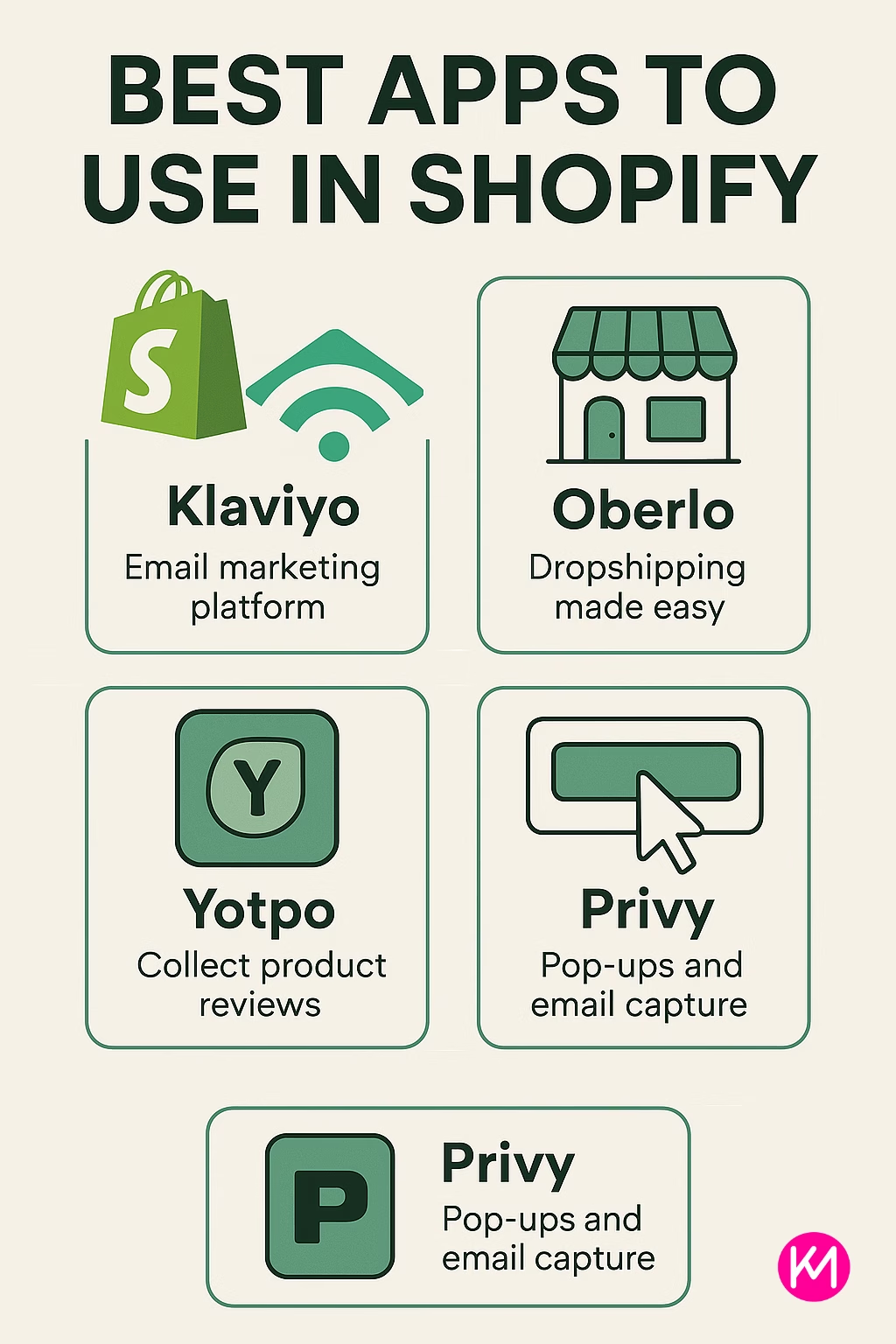Why Social Media Is Critical for E-commerce Success
In 2025, social media is the heart of online marketing. Platforms like Instagram, TikTok, and Facebook have evolved into dynamic marketplaces where brands can directly connect with, engage, and convert customers. For e-commerce companies, mastering social media isn’t optional—it’s essential for survival and growth.
Top Social Media Platforms for E-commerce Brands
With its highly visual nature, Instagram is perfect for showcasing products, running shoppable posts, and telling your brand story through Reels, Stories, and Live sessions.
Still a powerhouse, Facebook allows brands to target specific demographics, set up full-fledged online stores, and run high-converting ad campaigns.
TikTok
The viral potential on TikTok is unmatched. Quick, creative videos can catapult your brand into the spotlight overnight if you ride the trends wisely.
Perfect for niche products, Pinterest acts like a visual search engine, helping users discover new brands and products during their inspiration phase.
Key Social Media Strategies for E-commerce Companies
Building a Content Calendar
Consistency wins. A planned content calendar helps maintain a regular posting schedule, mix up content types, and align posts with promotions and seasons.
Running Targeted Ad Campaigns
Use advanced targeting features to serve personalized ads based on user interests, behaviors, and demographics, maximizing ROI.
Engaging With Your Audience
Promptly reply to comments, messages, and mentions. Engagement signals to algorithms that your brand is active and relevant, boosting visibility.
How to Create Content That Sells
Product Demos and Tutorials
Show how your products solve problems through short, educational videos or carousel posts.
Behind-the-Scenes and Brand Stories
Humanize your brand by giving followers a peek behind the curtain—whether it’s production, staff interviews, or mission stories.
Customer Testimonials and Reviews
Nothing sells better than happy customers. Share testimonials and unboxings from real users to build trust and credibility.
The Power of Influencer Marketing for E-commerce
Partnering with micro- and macro-influencers can exponentially expand your reach. Authentic collaborations drive brand awareness and influence purchasing decisions faster than traditional ads.
Using Paid Advertising Effectively on Social Media
Test different ad formats—video ads, carousel ads, collection ads—and continuously optimize based on performance data. Retarget website visitors to pull them back into the sales funnel.
Tracking and Analyzing Social Media Metrics
Success isn’t about vanity metrics like likes—it’s about clicks, conversions, and ROI. Regularly track key metrics like engagement rate, click-through rate (CTR), and cost per acquisition (CPA) to fine-tune your strategy.
Common Mistakes E-commerce Companies Make on Social Media
Inconsistent posting
Ignoring customer inquiries
Overpromoting without offering value
Neglecting paid ad opportunities
Not leveraging video content
Social Media Marketing Trends E-commerce Brands Must Watch in 2025
Social Commerce Growth (direct shopping inside apps)
AI-Powered Customer Service Bots
Shoppable Live Streams
Personalized Video Content
FAQs About E-commerce Social Media Marketing
Q1: Which social media platform is best for my e-commerce brand?
It depends on your audience and product, but Instagram and Facebook are usually strong starting points.
Q2: How much should I spend on paid social media ads?
Start small, then scale based on performance. A 10-15% ad spend of monthly revenue is typical.
Q3: How often should I post on social media?
Aim for 3–7 times per week depending on the platform and your audience engagement.
Q4: Are influencers worth the investment?
Yes, when chosen carefully, influencers can drive real results and ROI.
Q5: Should I focus on organic or paid social media growth?
Both! A combination ensures sustained growth and immediate visibility.
Q6: How can I stand out in a crowded social media space?
Be authentic, tell compelling stories, and prioritize customer relationships over hard selling.
Conclusion: How to Dominate E-commerce with Social Media Marketing
In 2025, social media is not just for brand awareness—it’s a full-fledged sales engine. By mastering organic strategies, leveraging paid ads, and connecting with influencers, your e-commerce brand can thrive in the competitive digital marketplace. Start crafting your strategy today, and dominate tomorrow!



